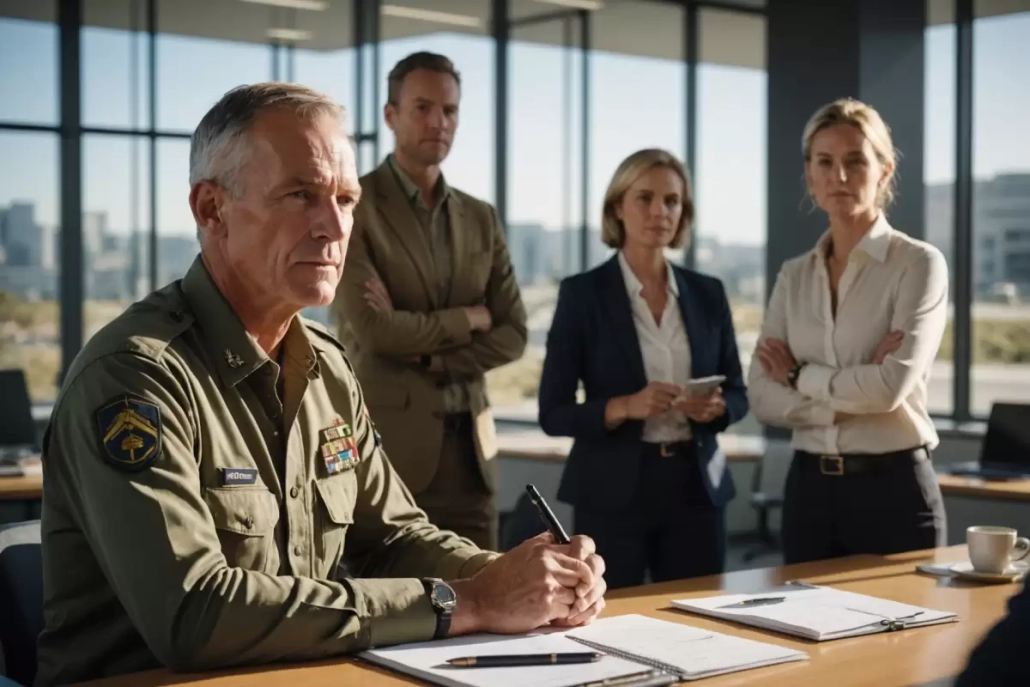Imagine this: You’ve just stepped off the plane, the sun is setting, and you’re about to embark on a new chapter of your life. The world is your oyster, but there’s one thing on your mind—how do you translate your unique experiences into a thriving civilian career? It’s a question many veterans face as they transition from military to civilian life. While the journey can be daunting, it’s also filled with opportunities to redefine your career path and embrace a new identity. Let’s explore how you can leverage your military background to not only find a job but to excel in a career that truly resonates with you.
Redefining Your Personal Brand
Embrace Your Unique Story
Every veteran has a story, a narrative that’s rich with experiences, challenges, and triumphs. Your story is your personal brand, and it’s what sets you apart in the civilian job market. Embrace it. Think about the leadership roles you’ve held, the teamwork you’ve fostered, and the resilience you’ve demonstrated. These aren’t just skills; they’re powerful stories that can captivate potential employers. Ever tried translating your military experiences into a compelling elevator pitch? It’s a game-changer!
The Art of Storytelling
Storytelling isn’t just for novelists or filmmakers; it’s a crucial skill in the job market. When you’re crafting your resume or preparing for an interview, think of it as telling a story. Highlight the challenges you faced, the actions you took, and the results you achieved. This narrative approach not only makes your experiences relatable but also memorable. After all, who doesn’t love a good story?
Navigating the Civilian Job Market
Understanding Industry Needs
The civilian job market can feel like uncharted territory, but fear not! Start by researching industries that align with your skills and interests. Whether it’s project management, cybersecurity, or logistics, there’s a niche out there waiting for you. Dive deep into industry trends, understand the skills in demand, and position yourself as a valuable asset.
Building a Network
Networking might sound like a buzzword, but it’s a powerful tool in your career arsenal. Connect with industry professionals, attend networking events, and don’t shy away from reaching out to mentors. These connections can open doors to opportunities you might not find through traditional job searches. Plus, who doesn’t enjoy a good coffee chat with someone who shares your interests?
Thriving in a New Work Culture
Adaptability is Key
Transitioning to a civilian work environment requires adaptability. The structure and discipline of military life are different from the often informal civilian workplace. Embrace this change as an opportunity to learn and grow. Be open to new ways of working, and remember, flexibility is your friend.
Prioritizing Mental Health
Your mental health is just as important as your career. The transition can be stressful, and it’s crucial to prioritize your well-being. Seek support when needed, whether it’s through counseling, support groups, or simply talking to someone who understands. A healthy mind leads to a successful career.
Exploring Further Resources
If you’re ready to take the next step in your career journey, Ironside Resources offers comprehensive veterans employment services designed to support Australian Defence Force veterans in their transition to civilian life. Their blog post, How Veterans Employment Services Can Help You Thrive After Your ADF Career, provides valuable insights into leveraging your military experience for a successful civilian career. It’s a must-read for anyone looking to navigate this transition with confidence.
For additional reading on how to effectively transition from military to civilian life, check out this comprehensive guide on military transition. It’s packed with tips and resources to help you thrive in your new chapter.



